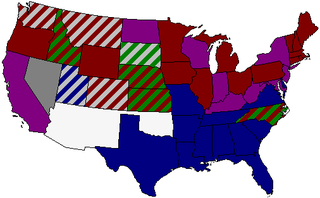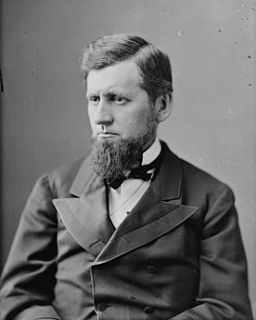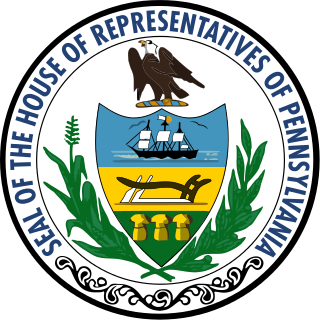
In the United States Senate elections of 1912 and 1913, Democrats gained control of the Senate from the Republicans. This coincided with Democrat Woodrow Wilson's victory in the presidential election amid a divide in the Republican Party. In the Senate, Joseph M. Dixon and Miles Poindexter defected from the Republican Party and joined Theodore Roosevelt's new Progressive Party. Dixon, however, lost his seat during this election.

Although the 17th Amendment was not passed until 1913, some states elected their Senators directly before its passage. Oregon pioneered direct election and experimented with different measures over several years until it succeeded in 1907. Soon after, Nebraska followed suit and laid the foundation for other states to adopt measures reflecting the people's will. By 1912, as many as 29 states elected senators either as nominees of their party's primary or in conjunction with a general election.

The United States Senate elections of 1908 and 1909, some states elected their senators directly even before passage of the 17th Amendment in 1913. Oregon pioneered direct election and experimented with different measures over several years until it succeeded in 1907. Soon after, Nebraska followed suit and laid the foundation for other states to adopt measures reflecting the people's will. By 1912, as many as 29 states elected senators either as nominees of their party's primary or in conjunction with a general election. The Republicans lost two seats overall.

The United States Senate elections of 1896 and 1897 were elections in which the Democratic Party lost seven seats in the United States Senate, mostly to smaller third parties.
The United States Senate elections of 1868 and 1869 were elections which had the Republican Party maintain their majority in the United States Senate. However, six former Confederate states were also readmitted separately from the general election, each electing two Republicans. This increased the Republicans' already overwhelming majority to the largest number of seats ever controlled by the party.
The United States Senate elections of 1876 and 1877 had the Democratic Party gain five seats in the United States Senate, and coincided with Rutherford B. Hayes's narrow election as President. Republicans remained in the majority, however.

The United States Senate elections of 1898 and 1899 were landslide elections which had the Republican Party gain six seats in the United States Senate.

The United States Senate elections of 1902 and 1903 were elections which had the Democratic Party gain three seats in the United States Senate, but the Republicans kept their strong majority.

The United States Senate elections of 1904 and 1905 were elections that coincided with President Theodore Roosevelt's landslide election to a full term. Party share of seats remained roughly the same, when including vacancies and appointments, and the Republicans retained a significant majority over the Democrats.
The United States Senate elections of 1878 and 1879 were elections which had the Democratic Party retake control of the United States Senate for the first time since before the Civil War.
The United States Senate elections of 1880 and 1881 were elections that coincided with the presidential election of 1880, and had the Democratic Party lose five seats in the United States Senate. The newly elected Readjuster senator caucused with the Republicans, and the Republican Vice President's tie-breaking vote gave the Republicans the slightest majority. All of that changed September 19, 1881 when the Vice President ascended to the Presidency and the Senate became evenly-divided.
The United States Senate elections of 1886 and 1887 were elections that had the Republican Party lose two seats in the United States Senate. At the beginning of the 50th Congress, therefore, Republicans had the slimmest possible majority due to a vacant Democratic seat: 38 out of 75 seats. Once that vacancy was filled, Republicans maintained control as the single Readjuster Senator caucused with them.
The United States Senate elections of 1890 and 1891 were elections in which the Republican Party lost four seats in the United States Senate, though still retaining a slim majority. That majority was increased, however, upon the admission of two more states with Republican senators.

The United States Senate elections of 1906 and 1907 were elections which had the Republican Party gain three seats in the United States Senate, expanding their majority to more twice that of the opposing Democratic Party.
The United States Senate elections of 1892 and 1893 were elections which, corresponding with former Democratic President Grover Cleveland's return to power, had the Republican Party lose nine seats in the United States Senate and lose its majority to the Democratic Party. The Democratic majority, however, was minimal and didn't last past the next Congress.
The United States Senate elections of 1830 and 1831 were elections that had Jacksonians gain one seat in the United States Senate from the Anti-Jacksonian coalition, but lose one seat to the short-lived Nullifier Party. By the time Congress first met in December 1831, however, the Jacksonians had a net loss of one seat.
The United States Senate elections of 1866 and 1867 were elections that saw the Republican Party gain two seats in the United States Senate as several of the Southern States were readmitted during Reconstruction, enlarging their majority.
The United States Senate elections of 1860 and 1861 were elections corresponding with Abraham Lincoln's election to the presidency. The nascent Republican Party increased their Senate seats in the general elections, and after southern Democrats withdrew to join the Confederacy, Republicans gained control of the United States Senate. To establish a quorum with fewer members, a lower total seat number was taken into account.
The United States Senate elections of 1862 and 1863 were elections during the American Civil War in which Republicans increased their control of the U.S. Senate. The Republican Party gained three seats, bringing their majority to 66% of the body. Also caucusing with them were Unionists and Unconditional Unionists. As many Southern states seceded in 1860 and 1861, and members left the Senate to join the Confederacy, or were expelled for supporting the rebellion, seats were declared vacant. To establish a quorum with fewer members, a lower total seat number was taken into account.

The 1901 United States Senate special election in Pennsylvania was held on January 15, 1901, after the regularly scheduled legislative election in January—April 1899 failed to elect a Senator. Former Senator Matthew Quay, who had left the Senate for nearly two years because of the political stalemate, was again elected by the Pennsylvania General Assembly to the United States Senate.


















